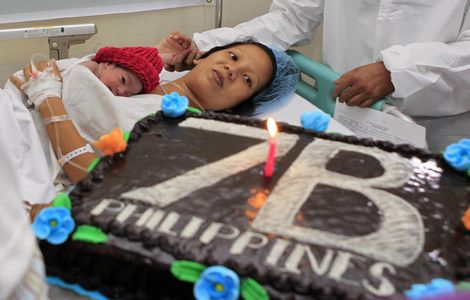President Hu attends G20 summit in Cannes
Updated: 2011-11-03 20:51
(Xinhua)
|
|||||||||||
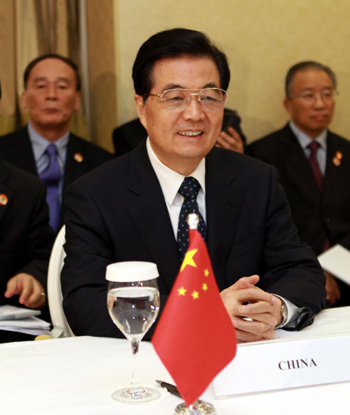 |
|
Chinese President Hu Jintao meets with leaders of Brazil, Russia, India and South Africa in Cannes, France, Nov 3, 2011. [Photo/Xinhua]] |
CANNES, France - Chinese President Hu Jintao and leaders of other Group of Twenty (G20) members started here Thursday on a two-day summit to consider strategies to strengthen the faltering world economy and achieve global financial stability.
At the two-day summit in the resort city of Cannes, the leaders were expected to address the major problems affecting the world economic recovery and the stability of global financial markets.
The leaders were to discuss the eurozone debt crisis, reform of the international monetary system, the strengthening of financial regulations, and other issues.
Hu also was expected to deliver speeches to explain China's stand on the issues being discussed at the summit.
The G20 summit convened at a time of heightened tensions and significant downside risks facing the global economy.
International financial markets currently are suffering drastic fluctuations, and world economic recovery has been imperiled by growing instability and uncertainty. Sovereign debt risks are increasing in some eurozone countries.
While unemployment remains high in major developed countries, emerging economies are burdened by inflationary pressures. World economic growth has shown signs of a slowdown.
The G20 leaders attending the Cannes summit have to find ways to restore confidence, financial stability and growth.
Eurozone leaders last week struck a bailout deal in an effort to end a two-year debt crisis. Under the deal, banks agreed to accept a 50-percent cut in the value of the Greek government debt they held, and governments agreed to increase the region's bailout fund to 1 trillion euros ($1.379 trillion).
China welcomes the deal reached by eurozone leaders to battle their region's debt crisis, Foreign Ministry spokeswoman Jiang Yu said at a news briefing last week.
"We hope the bailout deal will be conducive to bolstering market confidence, promoting the sustainable economic development of the eurozone and the process of European integration," Jiang said.
She said that China was ready to work with the international community to safeguard the stability of international financial markets and contribute to global economic recovery and growth.
President Hu last week in a telephone conversation with French President Nicolas Sarkozy exchanged views on the Cannes summit.
"The G20 has become an important platform for global economic governance," Hu said.
China hopes the G20 would, through the Cannes summit, convey "a strong signal of growth and stability to the international community" and make continued efforts to promote "robust, sustainable and balanced growth in the world economy," Hu said.
"China is ready to work together with the other G20 members to make the summit a meeting of unity, success and mutual benefit," Hu said.
Sarkozy said he hoped the leaders attending the summit would adopt common measures to ensure world economic growth.
Chinese Vice Foreign Minister Cui Tiankai said last week that Beijing hoped that the G20 members would make a joint effort to pursue macro-economic policies that will stabilize financial markets and restore confidence.
The summit, Cui said, should focus on critical issues in order to appropriately address such problems as inflation and the sovereign debt crisis in some developed countries.
Cui urged all G20 members to prevent protectionism and attend to the needs of the least developed economies.
"(The G20) should continue attaching importance to the problem of unbalanced development between the South and the North," Cui said.
He urged the group to objectively recognize the contributions of emerging economies and developing countries to world recovery and create a favorable environment for their growth.
The G20 was created in 1999 in response to the financial crises that plagued the emerging countries in the late 1990s.
Confronted with a global financial crisis, heads of state and the governments of G20 members met for the first time in Washington in November 2008. That was to work out an action plan to prevent the financial system and the global economy from collapsing.
Since then, leaders of the G20 have met regularly: in London in April 2009, Pittsburgh in September 2009, Toronto in June 2010, and Seoul in November 2010.
In the past three years, the G20 members have taken drastic steps to support the global economy. They have begun to address such problems as global macro-economic imbalances and the inadequacies of financial regulation.
The G20, which accounts for 85 percent of global output and two thirds of the world's population, has become the premier forum for world economic and financial cooperation.
The G20 members are Argentina, Australia, Brazil, Canada, China, France, Germany, India, Indonesia, Italy, Japan, Mexico, Russia, Saudi Arabia, South Africa, South Korea, Turkey, the United Kingdom, the United States and the European Union.
Related Stories
Hu, Sarkozy meet ahead of G20 summit 2011-11-03 09:25
China hopes G20 'truly helpful' for global growth 2011-11-03 08:34
Hu: G20 should ensure economic growth 2011-11-02 16:18
Hu arrives in France for G20 summit 2011-11-02 17:32
- Hu urges efforts to promote financial stability
- More grassroots delegates for CPC
- Concerns over social security scheme
- China urges support for Afghanistan
- Greek PM under pressure to quit
- China to build manned space station around 2020
- Hu attends G20 summit in Cannes
- China's imports, exports exceed $3t
Hot Topics
Libya conflict, Gaddafi, Oil spill, Palace Museum scandal, Inflation, Japan's new PM, Trapped miners, Mooncake tax, Weekly photos, Hurricane Irene
Editor's Picks
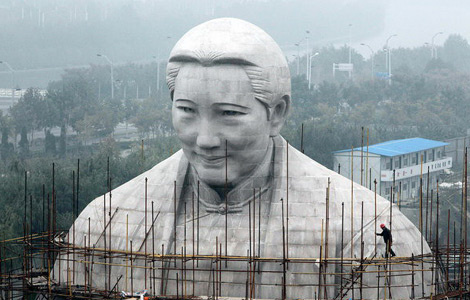
|

|
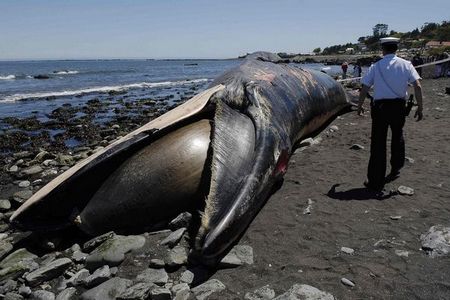
|

|
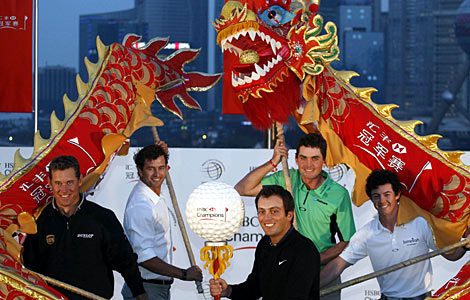
|
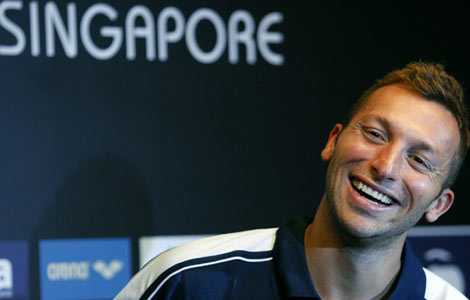
|



